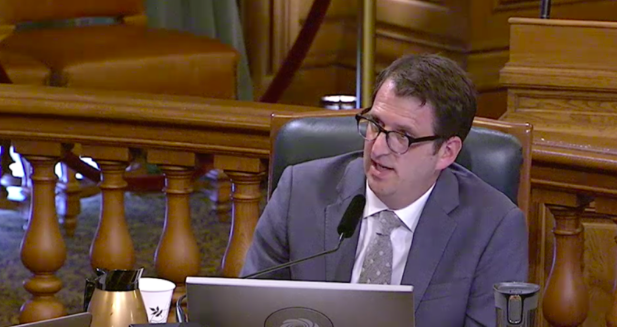
Sup. Dean Preston, who helped spearhead opposition to a Muni fare hike, took a new and novel approach today:
He asked the city attorney to look into whether the 12 percent price increase just approved by the Municipal Transportation Agency violates state law against price-gouging during emergencies.

State law is pretty clear on this, and has been for a long time: You can’t raise prices more than 10 percent during an emergency:
It is unlawful for a person, contractor, business, or other entity to sell or offer to sell any consumer food items or goods, goods or services used for emergency cleanup, emergency supplies, medical supplies, home heating oil, building materials, housing, transportation, freight, and storage services, or gasoline or other motor fuels for a price of more than 10 percent greater than the price charged by that person for those goods or services immediately prior to the proclamation or declaration of emergency.
The law has in the past been applied to private entities – but Preston said he thinks that local government ought to be complying, too.
“Voting to raise fares during this state of emergency, when so many San Franciscans are struggling, is more than just wrong,” Preston said in a press statement tonight. “We believe it may be illegal too.”
From his statement:
Preston has asked the City Attorney to advise on the application of the price gouging law to the MTA’s action, noting that there is no express exemption for public agencies. He noted that if the City Attorney advises that the law as currently written does not apply, Preston intends to pursue legislation to extend price gouging prohibitions to public agencies.
“Let’s be clear, if a private transportation company did what the SFMTA just did, we would be calling for criminal prosecution,” said Preston.Many public agencies during this crisis have reduced or waived fees and charges, but SFMTA has insisted on moving forward with its fare increase plans.
The fare increase would put the cost of a monthly pass at more than $100. That’s $1,200 a year just to get to work.
And it’s happening at a time when the city, the state, and the nation are likely headed into a serious recession.
The Board of Supes overwhelmingly approved a resolution calling on MTA not to raise fares. But the agency doesn’t have to abide by the board’s policy.
That wasn’t always the case. The supes used to have the right to approve or reject any fare increases (or route changes). But in 1999, in what was portrayed as a reform measure, the voters approved the creation of the SFMTA, which took completely control of Muni away from the board and handed it to a commission appointed by the mayor.
Now, it may take legal action to control the MTA’s appetite for fare hikes that decrease ridership, helps the likes of Uber, and harm the people most vulnerable during an economic crisis.


